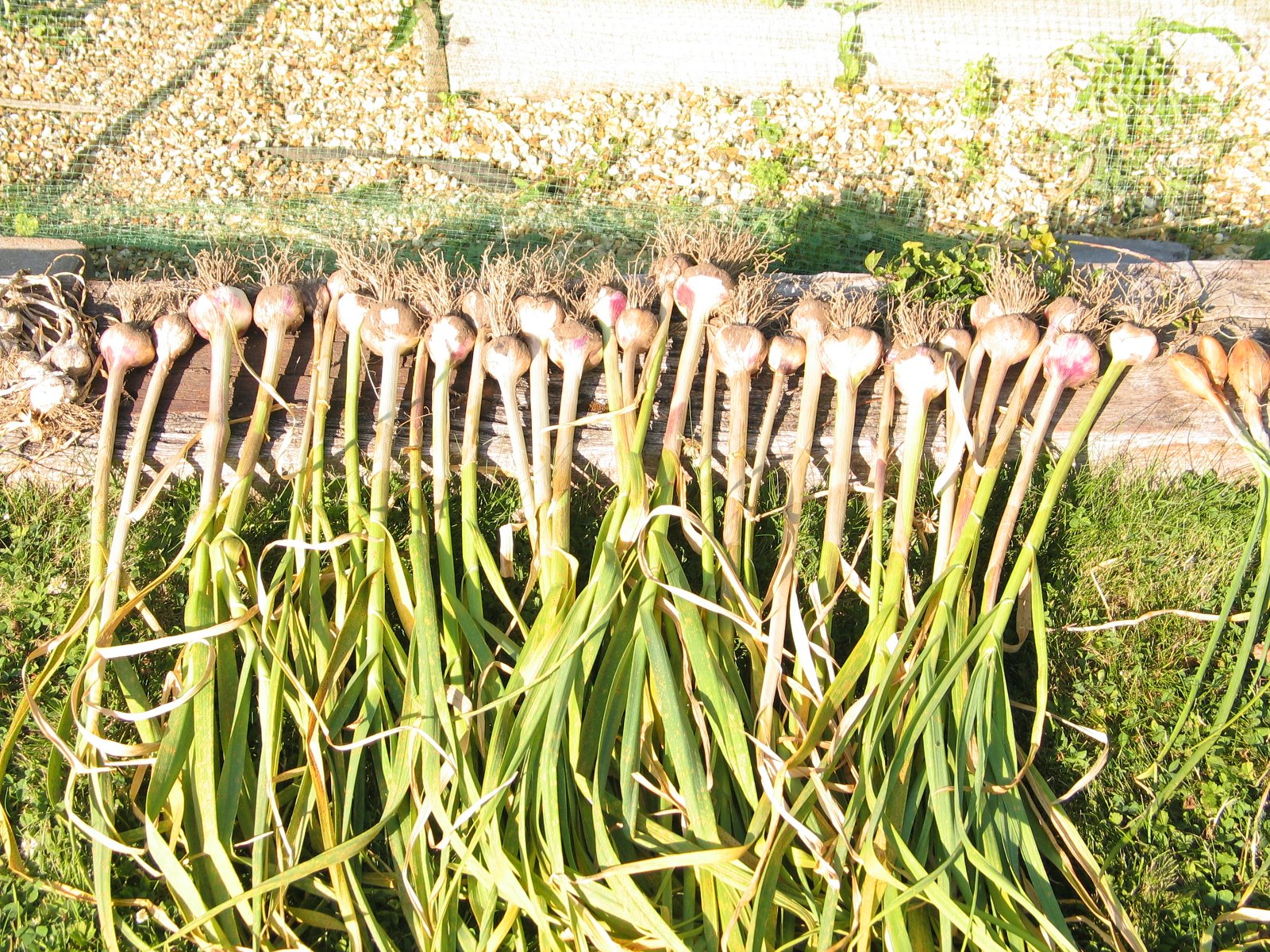
Garlic
Allium sativum
Basic Information
🌿 Family: Amaryllidaceae🗺️ Zone: 3-10
Other Names:
- Wild Garlic
- Hardneck Garlic (Allium sativum var. ophioscorodon)
- Softneck Garlic (Allium sativum var. sativum)
🌡️ Ideal Temperature : 32°F – 80°F
🔥 Heat Tolerance: Up to 100°F
❄️ Cold Tolerance: Down to -20°F
🌱 Type: Perennial
Layers
- Herbaceous
Description
Garlic (Allium sativum) is a bulbous perennial typically grown as an annual for its pungent, edible cloves. The plant has long, slender leaves and produces small white or purple flowers. It is one of the oldest cultivated plants and is valued for both culinary and medicinal uses.
Garlic thrives in well-drained, fertile soil with full sun exposure. It is commonly used as a companion plant due to its strong aroma, which repels many pests and improves overall garden health.
🌞💧 Sun and Water Requirements:
- Prefers full sun for optimal growth.
- Requires well-drained, fertile soil; sandy loam is ideal.
- Moderate water needs; avoid overwatering to prevent bulb rot.
✂️🫘 Methods to Propagate:
- Cloves: Plant individual cloves in fall for a summer harvest.
- Bulbils: Some varieties produce small bulbils in flower heads, which can be replanted.
- No seeds: Garlic rarely produces viable seeds and is best propagated by cloves.
🧑🌾👩🌾 When to Harvest:
- Harvest when leaves turn yellow and begin to dry out, typically 8–10 months after planting.
- Allow bulbs to cure in a dry, shaded area for 2–3 weeks before storage.
- Can be used fresh or stored for long-term use in a cool, dry place.
Purpose
Garlic serves multiple functions in a permaculture system:
- Edible: Cloves are used in cooking, herbal medicine, and preservation.
- Medicinal: Has antimicrobial, antifungal, and cardiovascular health benefits.
- Pest Management: Repels aphids, mites, and nematodes; used as a natural pesticide.
- Dynamic Accumulator: Accumulates sulfur, which can improve soil health.
- Border Plant: Used in garden borders to deter pests and enhance soil microbiology.